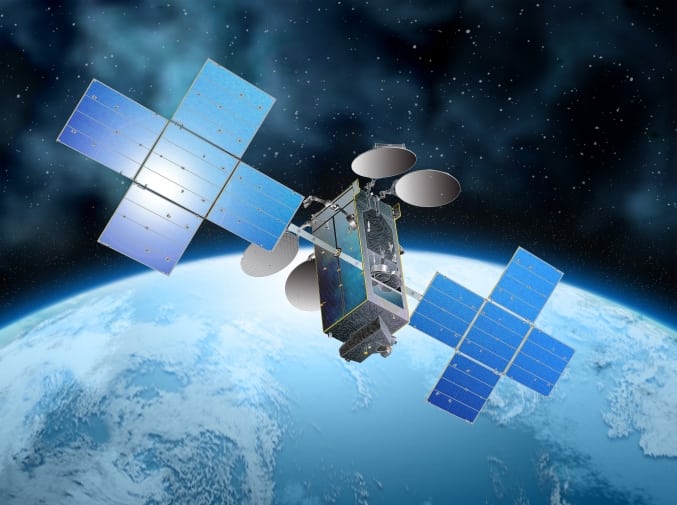Latest News

Rendition of EchoStar24/Jupiter 3 satellite. Photo: SSL.
Maxar Technologies will not deliver the Jupiter 3 satellite to EchoStar until the end of April 2023, and Maxar is forgiving EchoStar for future payments to compensate EchoStar for the delays, according to a new agreement between the companies.
Jupiter-3 is a high-throughput Geostationary Orbit (GEO) satellite that will provide capacity over the United States, Canada, Mexico, and South America. EchoStar and subsidiary Hughes Network Systems ordered the satellite from Maxar in 2017 for $445 million. The satellite was originally supposed to launch in 2021, but has been delayed multiple times.
Maxar detailed the amended agreement in a Nov. 22 filing to the Securities and Exchange Commission (SEC). Maxar notified Hughes on Nov. 9 that the satellite is not expected to ship until April 27, 2023. It was previously expected to ship March 26.
According to the SEC filing, EchoStar stated it intended to terminate the contract for default and claim a return of all money paid to Maxar, but the companies reached a new agreement on Nov. 16 to avoid that outcome.
Maxar has agreed to forgive all remaining milestone payments that EchoStar owes, amounting to about $14 million; forgive future incentive payments valued at about $43 million based on the satellite’s performance in-orbit; and purchase at least $30 million of goods and services from EchoStar in 2023.
If the satellite delivery slips further, Maxar agreed to pay $8 million per month beginning in July 2023, then $10 million per month beginning in October 2023 and increasing thereafter.
Maxar expects to record a $65 million charge in the fourth quarter of 2022 for the costs of the agreement.
EchoStar CEO Hamid Akhavan commented on the agreement. “”Launching and bringing the Hughes JUPITER 3 satellite into service is our highest priority to meet our customers’ needs for connectivity. This agreement ensures that Maxar shares that priority with us and reinforces our joint commitment to complete production of the satellite to world-class standards, as expeditiously as possible.”
Hughes is capacity constrained on its current satellite fleet as it waits for the additional capacity Jupiter 3 will bring. In its most recent quarterly financials, Hughes said capacity limitations are contributing to subscriber decline.
Explaining the delays, Maxar said in the SEC filing there have been “key subcontractor delays, challenging developmental work well beyond that of other Geostationary commercial satellites manufactured by the company, and the effects of the COVID-19 pandemic on the company’s workforce and supply chain.”
Maxar said the program is 96% complete and the satellite is in final mechanical alignments and integration of waveguide and reflectors. It still needs to go through vibration tests, final performances tests and then ship to the launch base. Maxar said the risk of delivery after June 2023 is “low.”
“We look forward to continuing our strong collaboration with EchoStar to complete construction of the Jupiter 3 satellite in line with the current schedule,” said Daniel Jablonsky, president and CEO, Maxar. “This agreement underscores Maxar’s state-of-the-art manufacturing capabilities as we enter into the final phases of construction of this ground-breaking spacecraft.”
Get the latest Via Satellite news!
Subscribe Now